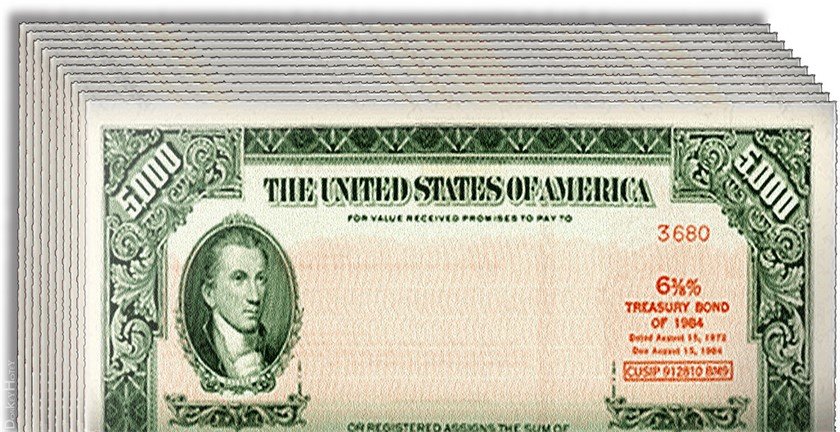Treasury bill (T-Bill) is a short-term debt issued by the US treasuries with a maturity of less than one year. Investing in T-Bills is a way of lending money to the government with intention of recollecting it and receiving interest rates within a year.
The money helps the government in financing the national debt. T-Bills is considered as one of the safest investment vehicles in the global financial market since your money is paid back with promised interest.
Treasury bills provide a readily available investment opportunity and are sold at a discount. Let’s take a look at the pros and cons of T-Bills.
Pros:
1. Safety and security: One of the major advantages of investing in T-bills is the safety and security provided to the investors. Although the yields may be quite low, there is a money back guarantee.
2. Short-term investment: T-bills are issued for a period of 52 weeks or less thus, no chance of being affected by inflation. Treasury bill is the safest investment since you’re guaranteed payment by the treasury.
3. Favorable tax treatment: Although the interest earned is subject to federal income tax, you will be exempted from state and local income tax. If you live in a state with high taxes, this helps you increase your earning from T-bills.
4. Low transaction cost: Buying T-bills directly from the treasury direct programs attracts free commission. Some of the nation’s largest brokers offer T-bills at zero commission. When the T-bills mature, you can turn them in and get your initial investment plus earnings at no cost or commission.
5. No risks involved: Treasury bills are considered to be risk-free as you will definitely get the money back with the interest promised by the government no matter the president in power.
6. Support from US government: T-Bills are backed by the credit of the US government. This makes you feel confident when investing in the US treasury bills.
7. Liquid: You can easily convert your investment into cash even before maturity. If you’re urgently in need of the cash, you can request for a refund of the money. You will not receive the full amount promised if the full-time period has not elapsed.
8. Yield curve: Having a longer T-Bill will result in higher returns compared to short-term investments. The amount of returns is directly proportional to how long you lend the government.
Cons:
1. Short-term in nature: T-bills mature very quickly and therefore you need to look for alternative means to reinvest your money after maturity. If the interests rates of the T-Bill drop, you will end up reinvesting and making less money.
2. Federal income tax: You will have to pay federal income tax once you receive interest payment after the bond matures.
3. Low rates of return: Due to the risk-free nature, treasury bills offer you low yields compared to the rate of return in other investments. The annual corporate rate of return is 5.83%.
4. Lower interest rates: Interest rates on T-Bills are usually lower than other investment options in the market.
5. Broker fee: If you buy the T-bills from the secondary market, you may have to pay broker fee or commission. Although this only applies to few broker firms, large national brokerage firms sale T-bills with zero commission.
6. Fluctuation of prices: T-Bill prices are influenced by factors such as monetary policy, macroeconomic conditions, and overall demand and supply of the treasuries.
7. Fall of prices: When other investments tend to be less risky and the US economy is expanding, the T-Bill prices seem to drop.



